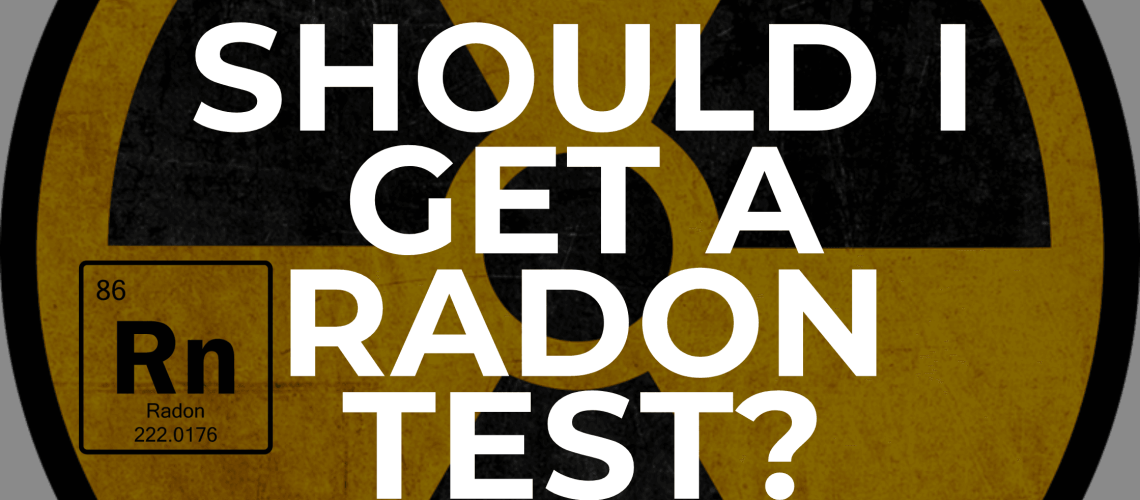When purchasing a home, many buyers are understandably concerned about the presence of radon, a colorless, odorless, and tasteless radioactive gas. It is known to pose serious health risks, including lung cancer, particularly when trapped in homes over long periods of time. This raises an important question for homebuyers in Memphis, Tennessee: Do I need a radon test in Memphis?
The brief answer is probably not, but that won’t stop most home inspectors from trying to upsell you on a Radon test. While radon is a concern in many areas of the United States, the risk in Memphis is generally considered low and not as high as in other parts of the country. That said, understanding how radon levels vary across Tennessee and the specific circumstances that could affect radon exposure in Memphis is crucial for homebuyers. In this article, we’ll explore the prevalence of radon in Memphis, why you should consider a radon test, and what the test entails.
What is Radon and Why Should I Care?
Radon is a naturally occurring radioactive gas that is produced by the decay of uranium in soil and rock. It can seep into homes through cracks in foundations, gaps around pipes, or other openings in the structure. Over time, radon gas can accumulate to dangerous levels, increasing the risk of lung cancer, especially for those who have been exposed to high radon levels for prolonged periods.
The U.S. Environmental Protection Agency (EPA) has established a radon action level of 4.0 picocuries per liter (pCi/L), above which action should be taken to reduce radon levels in a home. Even levels below 4.0 pCi/L can still pose a health risk over time, and the EPA recommends that homeowners take steps to mitigate radon exposure at any level.
How Common is Radon in Memphis, Tennessee?
The prevalence of radon in Memphis and across Tennessee varies, with some areas facing a higher risk than others. Radon is more common in areas where the underlying geology and soil composition allow the gas to accumulate and enter homes more easily.
In Tennessee, radon levels can differ significantly depending on geographic location. Most of Tennessee’s higher radon concentrations are found in the eastern and central regions of the state, particularly in areas with elevated granite and limestone bedrock, which are known to release more radon. These regions include cities such as Chattanooga, Knoxville, and parts of the Appalachian Mountains. The soil in these areas tends to be more conducive to radon seepage, meaning homes built in these areas may have a greater likelihood of experiencing high radon levels.
Radon Levels in Memphis
In Memphis, radon levels tend to be lower than in eastern Tennessee, but this does not mean the risk is nonexistent. According to the Tennessee Department of Environment and Conservation (TDEC) and EPA radon zone maps, Memphis is located in Radon Zone 3, which indicates a low potential for radon exposure. Zone 3 areas, such as Memphis, have an average radon level less than 2 pCi/L. This is why we generally do not recommend Radon testing for our clients in Shelby County, Fayette County, or Tipton County, Tennessee. If you want to get the test done anyway, we can arrange a radon test for you.
While the risk of high radon levels in Memphis is less pronounced compared to regions with higher geological concentrations, it’s important to note that radon levels can vary from house to house, even within the same neighborhood. Factors such as the home’s construction, ventilation, and foundation type can influence how much radon enters the building.
Should Homebuyers in Memphis Get a Radon Test?
Although Memphis does not have the highest radon risk in Tennessee, some homebuyers will choose to have a radon test before purchasing a property. This can provide peace of mind. Radon tests are relatively inexpensive and simple to perform, and they provide peace of mind knowing that you are not unknowingly exposing yourself and your family to a harmful gas. Here are a few key reasons why you should consider a radon test:
1. Radon Levels Can Vary Between Homes
Even if the general area has moderate radon levels, radon levels can vary significantly from one house to another. A house built on one side of a street may have much higher radon concentrations than one on the other side, even if they are similar in structure and design. Testing your specific home is the only way to know the true radon levels inside.
2. Health Risks Remain Even at Moderate Levels
While the risk is lower at moderate levels, there is still some danger associated with prolonged exposure to radon. According to the CDC, radon is the second-leading cause of lung cancer in the United States, and the risk increases with higher radon levels and longer exposure. Even if your home tests at a moderate level of radon, it is still a good idea to consider radon mitigation if you plan to stay in the home long-term.
3. Affordable and Simple to Test
Radon testing is an easy and relatively inexpensive process. Most radon tests can be conducted for $100 to $200 by professionals, and there are also do-it-yourself test kits available for under $50. If the test results show that radon levels are above the EPA’s action level of 4.0 pCi/L, you can take steps to mitigate the radon problem before finalizing the purchase.
4. Potential for Radon Mitigation
If a home’s radon levels are found to be elevated, it’s important to know that radon mitigation systems are available and can effectively reduce radon levels in most homes. The cost of installing a mitigation system can vary, but it typically ranges from $800 to $2,500 depending on the size of the home and the complexity of the installation. If a home tests positive for radon, you can factor the cost of mitigation into your negotiations, ensuring that you’re not facing unexpected expenses after moving in.
What Does a Radon Test Involve?
Radon testing can be done in a couple of different ways, depending on your preference and budget. The two most common methods are short-term radon tests and long-term radon tests:
- Short-Term Tests: These tests typically last between 2 to 7 days and are useful for getting a quick reading of the radon levels in the home. Short-term tests are usually conducted using a charcoal canister or an electronic radon monitor. While they are less expensive and faster, they can sometimes provide less accurate results than long-term tests.
- Long-Term Tests: These tests are conducted over a period of 90 days or more and provide a more accurate average of radon levels in the home. Long-term tests are typically performed using alpha-track detectors or electret ion chambers. These tests are more expensive but can offer a better understanding of a home’s overall radon exposure.
In either case, a certified radon tester will place the testing device in the lowest lived-in area of the home, usually the basement or ground level, and the test will be conducted with the home closed to minimize ventilation. After the test period ends, the results will be analyzed and shared with the homeowner.
How to Proceed if High Radon Levels Are Detected
If the radon test reveals levels above the EPA’s action level of 4.0 pCi/L, the next step is to consider installing a radon mitigation system. These systems are designed to reduce radon levels by venting the gas outside the home through a system of pipes and fans. Radon mitigation is a common and effective method to deal with elevated radon levels, and it can often be done without significant disruption to the home.
If you’re still in the process of negotiating the home purchase, it may be possible to ask the seller to cover the costs of mitigation or to lower the purchase price to help cover the expenses.
Conclusion: Should You Get a Radon Test in Memphis?
While radon levels in Memphis, Tennessee, are generally considered low, testing for radon is still a prudent step for homebuyers. Given the potential health risks associated with prolonged radon exposure, it’s important to know the radon levels in the home you’re purchasing. Fortunately, radon testing is affordable, simple, and can give you peace of mind knowing whether radon mitigation is necessary.
If you’re buying a home in Memphis, taking the time to conduct a radon test is a small investment that could help protect your health and your family in the long run. While radon is not as common in Memphis as in other parts of the state, it is still a possibility—so make sure you’re making an informed decision before you finalize your home purchase.


